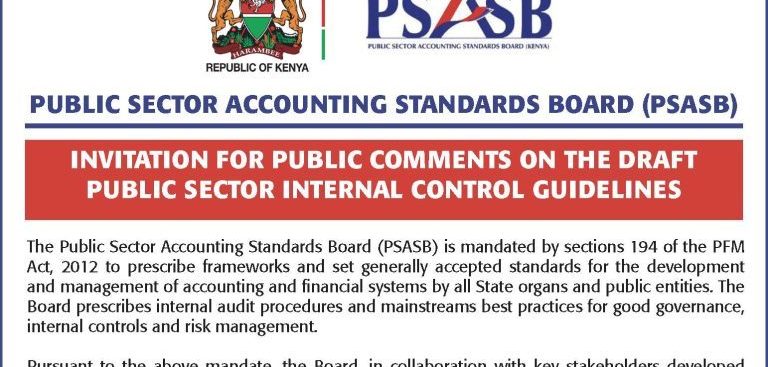The promoters of the Financial Reporting (FiRe) Award have today launched the FiRe Award 2024 edition in a move aimed at pushing for integrated financial reporting across the private and public sectors in the country, thus enhancing accountability and transparency in resource management.
This year’s Award’s theme is “championing for effective sustainability reporting through technology and innovation to enhance transparency,” which underscores the growing importance of business sustainability disclosures as a reporting mandate for private companies and public sector entities.
The FiRe Award is organised by the Institute of Certified Public Accountants of Kenya (ICPAK), the Public Sector Accounting Standards Board (PSASB), the Nairobi Securities Exchange (NSE), Capital Markets Authority (CMA), and the Retirement Benefits Authority (RBA).
During the Award ceremony that takes place usually in December, private and public sector entities are expected to provide comprehensive information on their environmental, social, and governance (ESG) practices, reflecting their commitment to sustainable development, as part of their disclosure of non-financial information.
Speaking during the launch of the 23rd edition of the FiRe Award, the Chairperson of the Award Executive Committee, who is also the ICPAK CEO, CPA Dr. Grace Kamau, pointed out the critical role that sustainability reporting plays in advancing sustainable development goals and promoting corporate responsibility.
She said that by adopting International Financial Reporting Standards (IFRS), especially IFRS S1 and S2, ICPAK aims to provide guidance and frameworks that allow enterprises to effectively monitor, manage, and disclose their sustainability impacts and climate risks and opportunities.
“Soon, we will release a communique to guide the market on the envisioned phases of adoption, assurance of sustainability reports, and disclosure of sustainability information while continuing to create awareness through curated workshops and roundtable events to ensure a just transition.”, said Dr. Kamau.
The NSE Chief Executive, Mr. Frank Mwiti, noted that NSE has placed special focus in supporting and enabling companies in Kenya to report on sustainability to better manage risks and attract more investments in particular companies.
“We strongly believe that private companies will be better placed to address growing stakeholder demands for transparency on how businesses manage their impacts to the environment, economy and people.”
The PSASB Acting CEO, Ms. Georgina Muchai, encouraged the public sector entities to increase the uptake of ESG reporting noting that “ESG is a growing concern for government regulators, investors, and standards bodies. With ESG, public sector entities now have a great opportunity to prepare for new regulations around sustainability reporting and commit to transparency and accountability. This means setting out to gather information to inform entities’ strategies, manage risks and achieve a stronger, more sustainable performance over the long term.”
Present during the event was the RBA CEO, Mr. Charles Machira, who underscored the importance of adopting ESG principles in financial reporting by Retirement Benefits Schemes.
“In the pension industry, stakeholders are demanding for disclosures on sustainability strategies. As a way of promoting governance and enhancing confidence in the pension sector, I look forward to enhanced disclosures on the impact, opportunities and risks that have arisen with adoption of ESG Principles,” said Mr. Machira.
Equally, the CMA CEO, Mr. Wyckliffe Shamiah, said that business sustainability and climate-related disclosures are becoming a key consideration for publicly listed companies. This comes on the back of the publication of standards for Sustainability-related Financial Information (IFRS S1) and Climate-related Disclosures (IFRS S2) by the International Sustainability Standards Board (ISSB) 12 months ago.
“The finalization of the standards by ISSB marks an important step in the development of a global baseline for sustainability disclosures to support transparency and comparability in the capital markets. The Standards are expected to enhance trust and confidence in company disclosures about sustainability’’.

